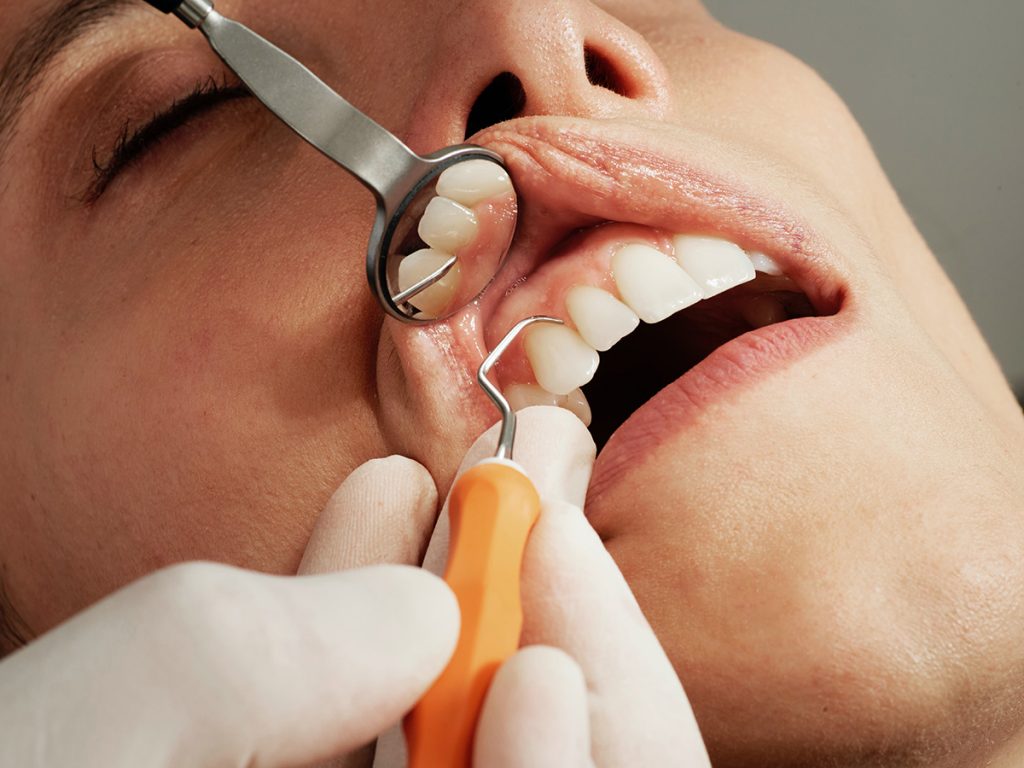Are you concerned about gum disease? Or do you simply wish to know the signs to look out for? In the following article, a dentist in Meath offers some symptoms and warning signs that you may be suffering from gum disease.
Swollen gums
It is common for gums to become swollen, especially if you are ill or have been brushing your teeth with vigorous force. Persistently swollen gums is often a sign that you may be suffering from periodontal disease, and even if your gums are not sore, you should seek the advice of a dental team or hygienist. This is more urgent if your gums also appear red or are protruding over your teeth.
Bleeding when brushing

You may have seen adverts on television discussing the prevalence of bleeding gums with gum disease. It can be tricky to differentiate between over-vigorous brushing and a genuine symptom of gum disease. One key feature to look out for is the presence of blood when you are eating or simply talking. You can also detect this by a distinctive metallic taste in your mouth, which can appear when you are eating, brushing, talking or chewing gum.
If you notice blood when you spit your toothpaste out, this is a sign that you need to talk to your dental team urgently.
Sore gums
It can be tricky to determine the cause of sore gums, especially if you have been unwell, are taking medication, have a dry mouth or are simply an over-enthusiastic brusher! If your gums feel sore throughout the day or when you run your tongue over them, this can be a sign that you have the early symptoms of periodontal disease.
Loose teeth
It is very unusual for somebody to get to the stage of having a loose tooth due to periodontal disease without having the other symptoms mentioned in this article first. But perhaps you are suffering from a dental phobia and wish to avoid dental care altogether. Unfortunately, the result of untreated gum disease is damage to the jaw bone and the loss of teeth.
If you do notice that one of your teeth is loose or moving, you should seek urgent treatment from your dental team to assess the cause.
Treating gum disease
In cases where your gums are sore, bleeding or swollen, your dental team may choose to offer you a scale and polish appointment with a hygienist.
A scale and polish is simply a deep clean, in which the hygienist removes plaque and tartar from above and below the gum line. This cannot be achieved at home, and if you have gum disease, it is the standard treatment for the early stages.
If your teeth are loose or you have lost teeth, then your dental team may offer you a dental splint. This will involve the loose tooth being attached to the two nearest stable teeth to secure and preserve it, provided that the bone around the tooth is not damaged. If you have lost a tooth to gum disease, your dental team will typically treat the underlying issue and then offer you a restorative procedure such as dentures, bridges or dental implants.

